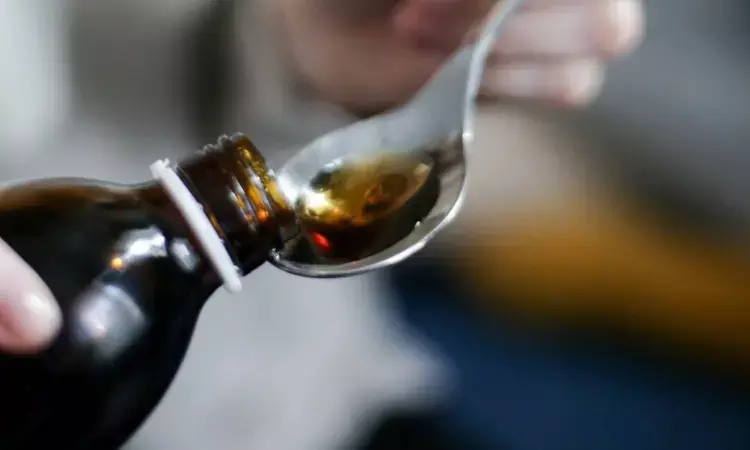- Home
- Medical news & Guidelines
- Anesthesiology
- Cardiology and CTVS
- Critical Care
- Dentistry
- Dermatology
- Diabetes and Endocrinology
- ENT
- Gastroenterology
- Medicine
- Nephrology
- Neurology
- Obstretics-Gynaecology
- Oncology
- Ophthalmology
- Orthopaedics
- Pediatrics-Neonatology
- Psychiatry
- Pulmonology
- Radiology
- Surgery
- Urology
- Laboratory Medicine
- Diet
- Nursing
- Paramedical
- Physiotherapy
- Health news
- Fact Check
- Bone Health Fact Check
- Brain Health Fact Check
- Cancer Related Fact Check
- Child Care Fact Check
- Dental and oral health fact check
- Diabetes and metabolic health fact check
- Diet and Nutrition Fact Check
- Eye and ENT Care Fact Check
- Fitness fact check
- Gut health fact check
- Heart health fact check
- Kidney health fact check
- Medical education fact check
- Men's health fact check
- Respiratory fact check
- Skin and hair care fact check
- Vaccine and Immunization fact check
- Women's health fact check
- AYUSH
- State News
- Andaman and Nicobar Islands
- Andhra Pradesh
- Arunachal Pradesh
- Assam
- Bihar
- Chandigarh
- Chattisgarh
- Dadra and Nagar Haveli
- Daman and Diu
- Delhi
- Goa
- Gujarat
- Haryana
- Himachal Pradesh
- Jammu & Kashmir
- Jharkhand
- Karnataka
- Kerala
- Ladakh
- Lakshadweep
- Madhya Pradesh
- Maharashtra
- Manipur
- Meghalaya
- Mizoram
- Nagaland
- Odisha
- Puducherry
- Punjab
- Rajasthan
- Sikkim
- Tamil Nadu
- Telangana
- Tripura
- Uttar Pradesh
- Uttrakhand
- West Bengal
- Medical Education
- Industry
Cough syrup suspected of killing 12 kids in Cameroon might be made in India

A variety of cough syrup suspected by Cameroonian authorities of killing a dozen children in the central African country in recent months bears markings indicating it was made in India.
The revelation raises the prospect of a third mass death event linked to exported Indian cough syrups in less than a year. Medicines from two other Indian companies killed more than 60 children in Gambia and about 20 in Uzbekistan last year. In those cases, the syrup medications were found to have been contaminated with two toxic chemicals, ethylene glycol and diethylene glycol. Two more Indian companies are suspected of making similarly tainted syrups found in Liberia and in the Marshall Islands, although no injuries have been reported in those cases.
“Based on your questions, we have sent a team to investigate and we are waiting for the reports,” an official at the Madhya Pradesh Food and Drugs Administration told Bloomberg.
The Cameroonian authorities are still investigating the cause of the outbreak and plan to test the Naturcold samples connected to the deaths, Filbert said in a text message on June 5. The death toll stood at 12 children as of that date, he said.
Filbert said the medicine was not authorized to be imported into Cameroon and was probably smuggled into the country. He said authorities don’t have information about the drugs’ origin.
According to the product label visible in the photos, the bottle of cough syrup was made in March 2022. It bears the name and logo of Fraken International, a marketing company with a UK address. Attempts to reach people at that address by email and LinkedIn messages were unsuccessful.
Bhatia said that Riemann last produced a batch of Naturcold under contract for Fraken in early 2022 and provided it to an exporter who reported sending it to Cameroon. Riemann is one of several Indian companies that have made the product, he said.
Propylene glycol and glycerin are key raw materials for syrups. Riemann buys these chemicals only in sealed containers from name-brand manufacturers, and then hires a third-party lab to test them prior to use, Bhatia said.
“We pay extra attention to quality,” he said. “Everything is done to ensure safety.”
Duplicacy, a term for when a drug is disguised to look like another company’s product, is common in some parts of Africa, Bhatia said.
“They look like ours, but we cannot be sure. There is so much duplicacy there. Based on the quality of our product, it is doubtful,” he said. “I am 110% sure that my product is not contaminated — what we sent from here.”
Ruchika Sharma joined Medical Dialogue as an Correspondent for the Business Section in 2019. She covers all the updates in the Pharmaceutical field, Policy, Insurance, Business Healthcare, Medical News, Health News, Pharma News, Healthcare and Investment. She has completed her B.Com from Delhi University and then pursued postgraduation in M.Com. She can be contacted at editorial@medicaldialogues.in Contact no. 011-43720751


